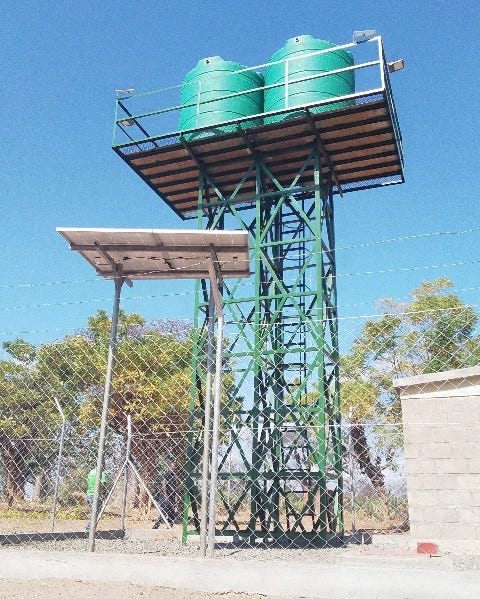Solar-Powered Water Project Brings Relief to Malawi's Sitolo Village
The project aligns with Malawi's efforts to achieve universal access to safe water and sanitation, as outlined in the Sustainable Development Goals (SDGs) and the country's development strategies.
DEDZA, Malawi— Residents of Sitolo Village in Dedza district are experiencing a significant improvement in their access to safe water after Welt Hunger Hilfe implemented a solar-powered water project in the area, writes Edward Chikwanda.
During an inspection of the project on Tuesday, Water and Sanitation Hygiene (WASH) coordinator Anderson Botoman advised the community to maintain cleanliness around the water sources to prevent contamination.
He also urged stakeholders to collaborate with the organization in promoting hygiene and safe water practices.
Jonas Langison, a representative of Group Village Headman Sitolo, expressed gratitude for the project, stating that it has alleviated the water challenges previously faced by the community.
"People in this area used to walk long distances to fetch water, and some people's lives were in danger because they relied much on unprotected sources like dams, wells, and rivers. The coming of this tapped water has also reduced the scrambling of people, which was happening on boreholes in the area," Langison said.
However, Langison requested the organization to provide batteries to pump water during cloudy days when the solar panels are unable to generate sufficient power.
One of the committee members, Evans Phiri, assured the organization that security measures are in place to safeguard the water tanks and solar panels.
The solar-powered water system, funded by Rabe and implemented by Welt Hunger Hilfe, is benefiting 180 households in Sitolo Village.
It is expected to significantly improve access to safe and clean water, reducing the burden on women and children who previously had to travel long distances to fetch water.
Sitolo Village falls under Traditional Authority Kachindamoto in Dedza district, an area that has long grappled with water scarcity and the associated health risks of relying on unprotected water sources.
The project aligns with Malawi's efforts to achieve universal access to safe water and sanitation, as outlined in the Sustainable Development Goals (SDGs) and the country's development strategies.



